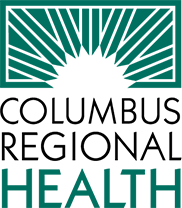Family Medical History: Knowledge is Power
You may have inherited your dad’s blue eyes or your mom’s curly hair, but if one of your parents develops diabetes or heart disease, your fate is not sealed.
In fact, a combination of genes and lifestyle factors—such as diet, smoking and exercise habits—cause most conditions that run in families. In addition to heart disease and diabetes, other conditions that include a genetic factor that increases risk are:
- Several cancers, including those of the colon, breast, brain, ovaries, stomach and skin
- Asthma and allergies
- Alzheimer’s disease
- Osteoporosis
- Migraines
Look to the Past
Knowing whether a family member had any of these conditions is important. But the more complete the information, the more useful it can be. It’s helpful to know the answers to these questions:
- How many family members were affected?
- How closely were they related?
- At what age were they diagnosed?
- At what age did they die, and what was the cause of death?
Learning these details can help your healthcare provider make smarter decisions and help you make the sort of lifestyle choices that can reduce your risk.
Plan for Prevention
Once you know your inherited risks, there are healthy choices you can make to overcome them: Stay active, eat well, manage your weight, watch your blood pressure, limit your alcohol intake and don’t smoke.
By taking these steps, you can turn your family medical history into a powerful preventive tool.
Ask About Screenings
Most diseases are easier to treat, and less lethal, when caught in their early stages. And screening tests are available to catch inherited conditions, including breast cancer.
Learn more about heart and lung screening options at Columbus Regional Health.

CRH News
-
Final Two CRH Practices Move to NexusPark
Apr 18, 2024, 12:36 PM by DeClue, A.CRH at NexusPark officially opened in late January, and more than 15 provider practices and services have relocated to the space in the first quarter of 2024.Full story -
Wound Center Receives National Awards
Apr 3, 2024, 15:21 PM by DeClue, A.The Wound Center achieved outstanding clinical outcomes for twelve consecutive months, including a patient satisfaction rate higher than 92 percentFull story -
CRH conducting independent public health survey
Mar 26, 2024, 12:41 PM by DeClue, A.Columbus Regional Health is conducting a Health Status Survey by telephone and online from March through May.Full story -
Columbus Regional Health offers new online health portal for expectant parents
Mar 25, 2024, 14:21 PM by DeClue, A.With CRH’s new My Pregnancy Journey, patients can use their computers or mobile devices to review digital prenatal education from a trusted source and track important decisions and tasks that need to happen at specific pregnancy milestones.Full story -
Additional Medical Practices Move to NexusPark
Mar 25, 2024, 11:24 AM by DeClue, A.More practices and services relocate to NexusPark facility.Full story -
Eclipse office hours for CRH-affiliated services
Mar 21, 2024, 14:01 PM by Laker, J.Office hours for CRH-affiliated practices and service lines for the April 8, 2024, Total Solar Eclipse.Full story

